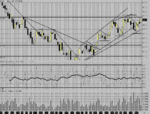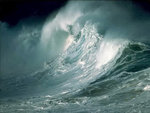EFFORTFUL STUDY is the key
http://www.sciam.com/article.cfm?chanID=sa006&colID=1&articleID=00010347-101C-14C1-8F9E83414B7F4945
Without a demonstrably immense superiority in skill over the novice, there can be no true experts, only laypeople with imposing credentials. Such, alas, are all too common. Rigorous studies in the past two decades have shown that professional stock pickers invest no more successfully than amateurs, that noted connoisseurs distinguish wines hardly better than yokels, and that highly credentialed psychiatric therapists help patients no more than colleagues with less advanced degrees. And even when expertise undoubtedly exists--as in, say, teaching or business management--it is often hard to measure, let alone explain.
That what matters is not experience per se but "effortful study," which entails continually tackling challenges that lie just beyond one's competence
It is interesting to note that time spent playing chess, even in tournaments, appears to contribute less than such study to a player's progress; the main training value of such games is to point up weaknesses for future study.
Even the novice engages in effortful study at first, which is why beginners so often improve rapidly in playing golf, say, or in driving a car. But having reached an acceptable performance--for instance, keeping up with one's golf buddies or passing a driver's exam--most people relax. Their performance then becomes automatic and therefore impervious to further improvement.
In contrast, experts-in-training keep the lid of their mind's box open all the time, so that they can inspect, criticize and augment its contents and thereby approach the standard set by leaders in their fields.
http://www.sciam.com/article.cfm?chanID=sa006&colID=1&articleID=00010347-101C-14C1-8F9E83414B7F4945
Without a demonstrably immense superiority in skill over the novice, there can be no true experts, only laypeople with imposing credentials. Such, alas, are all too common. Rigorous studies in the past two decades have shown that professional stock pickers invest no more successfully than amateurs, that noted connoisseurs distinguish wines hardly better than yokels, and that highly credentialed psychiatric therapists help patients no more than colleagues with less advanced degrees. And even when expertise undoubtedly exists--as in, say, teaching or business management--it is often hard to measure, let alone explain.
That what matters is not experience per se but "effortful study," which entails continually tackling challenges that lie just beyond one's competence
It is interesting to note that time spent playing chess, even in tournaments, appears to contribute less than such study to a player's progress; the main training value of such games is to point up weaknesses for future study.
Even the novice engages in effortful study at first, which is why beginners so often improve rapidly in playing golf, say, or in driving a car. But having reached an acceptable performance--for instance, keeping up with one's golf buddies or passing a driver's exam--most people relax. Their performance then becomes automatic and therefore impervious to further improvement.
In contrast, experts-in-training keep the lid of their mind's box open all the time, so that they can inspect, criticize and augment its contents and thereby approach the standard set by leaders in their fields.
Last edited:







